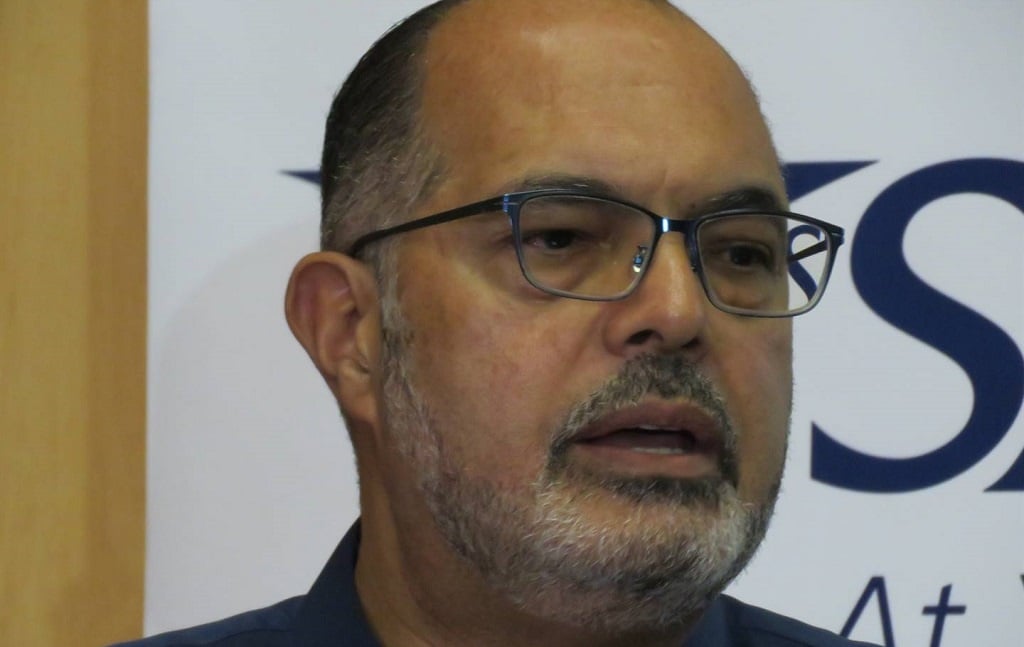


SARS Commission Edward Kieswetter. (Photo: Elvira Wood).
- The National Planning Commission has released a position paper on improving the performance of SOEs, to be in line with objectives of the National Development Plan.
- SARS boss Edward Kieswetter says that “political interference” is undermining the commercial viability of some SOEs.
- But he believes SA can repeat the successes of the past by ensuring good governance, and having clearly defined roles and expectations.
When it comes to reforming state-owned enterprises, we shouldn’t “overcomplicate” the matter, says SARS Commissioner Edward Kieswetter.
The commissioner was a participant in a webinar on the contribution of state-owned enterprises in achieving the 2030 vision of the National Development Plan (NDP). The webinar was hosted by Government Technical Advisory Centre, and is based on a position paper released by the National Planning Commission (NPC) in June. The document has been published for public comment and the webinar was an opportunity to get more inputs to inform the final paper to be handed to President Cyril Ramaphosa in August.
The paper makes recommendations on improving the performance of SOEs, specifically how they relate to delivering on goals of the NDP. It makes recommendations on governance, financial reforms, policies and processes, and structural reforms.
Kieswetter described the research as “thorough” and “sufficient” to deal with issues at SOEs. Going forward we need to be “pragmatic” and not overcomplicate” things, he said, referring to his prior experience as a member of the Eskom leadership team which turned around the “ailing” utility into one that was “globally admired” back in the 90s, he added.
“We actually know how to do this, we must just not overcomplicate it,” he said. Similarly, national carrier SAA and state rail and freight company Transnet operated efficiently, Kieswetter recalled.
- READ | ANALYSIS | Is Covid-19 spurring on reform of state-owned enterprises?
One of the contributors to success was the lack of “political interference”, he explained. “The politicians stayed out of the engine room and that was important,” he said.
A second contributor was “good governance”.
“The roles between the shareholder, board and management were clearly defined and adequately implemented.” Corruption has led to cost overruns which rendered these entities financially unviable, he lamented.
“For me it is about sound governance, a clear distinction on the roles of shareholders and management and appointing professional, competent managers and holding them accountable.
“If we just do these things, we will see a remarkable turnaround in the SOEs,” Kieswetter said.
Elephant in the room
Kieswetter said political interference is the “elephant in the room” and must be called out so that it can be addressed. “You must be blind not to see how political interference has hollowed out capacity at state-owned institutions and organs of state,” he said.
He added that if he were CEO of a SOE he would ask the shareholder; the relevant government department; and the board to be clear about their expectations of him and then to give him the “scope and room” to do what he has to. He said that if he did not perform, then they would be well within their rights to fire him too. Importantly, if he were asked to do something he did not believe served the interests of the entity, he would resign.
In its paper, the NPC’s reforms on governance call for the appointment of management and boards to be in line with corporate governance norms to avoid political appointments, ensure leadership stability, and strengthen corporate governance through the public disclosure of relevant policies and training boards and executives on their responsibilities and ethics, improving internal accountability.
Further reforms to state ownership and oversight are recommended. There are three options, either to establish a SOE holding company with a commercial company structure that protects entities from political interference, or have a pilot holding company with the Department of Public Enterprises playing a leading role, or having the department retain ownership oversight, under the coordination of the Presidential SOE Council.

